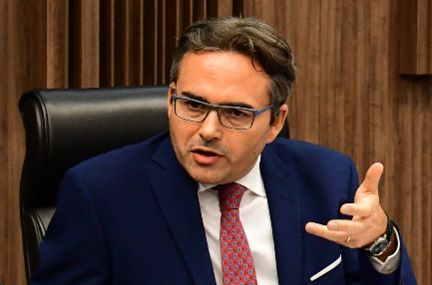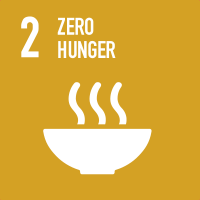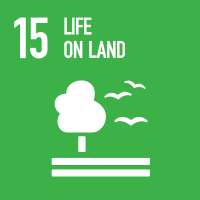Studying at the University of Verona
Here you can find information on the organisational aspects of the Programme, lecture timetables, learning activities and useful contact details for your time at the University, from enrolment to graduation.
Academic calendar
The academic calendar shows the deadlines and scheduled events that are relevant to students, teaching and technical-administrative staff of the University. Public holidays and University closures are also indicated. The academic year normally begins on 1 October each year and ends on 30 September of the following year.
Course calendar
The Academic Calendar sets out the degree programme lecture and exam timetables, as well as the relevant university closure dates..
| Period | From | To |
|---|---|---|
| 1° periodo di lezioni - 12 CFU | Sep 21, 2020 | Dec 14, 2020 |
| 1° periodo di lezioni | Sep 28, 2020 | Dec 14, 2020 |
| Periodo riservato ad eventuali recuperi di lezioni – dicembre 2020 | Dec 15, 2020 | Dec 16, 2020 |
| 2° periodo di lezioni - febbraio/marzo 2020 - 12 CFU | Feb 8, 2021 | Mar 29, 2021 |
| 2° periodo di lezioni - febbraio/marzo 2021 | Feb 15, 2021 | Mar 29, 2021 |
| 2° periodo di lezioni - aprile/maggio 2021 | Apr 7, 2021 | May 12, 2021 |
| 2° periodo di lezioni - aprile/maggio 2021 - 12 CFU | Apr 7, 2021 | May 12, 2021 |
| Periodo riservato ad eventuali recuperi di lezioni – maggio 2021 | May 13, 2021 | May 15, 2021 |
| Session | From | To |
|---|---|---|
| Pre-accertamenti insegnamenti annuali (15 CFU LMG e 12 CFU SSG) | Dec 15, 2020 | Dec 16, 2020 |
| Sessione straordinaria – studenti f.c. e insegnamenti del 1° periodo | Dec 17, 2020 | Dec 23, 2020 |
| Sessione invernale – 2 appelli | Jan 8, 2021 | Feb 11, 2021 |
| Sessione straordinaria – studenti f.c. - marzo 2021 | Mar 30, 2021 | Apr 1, 2021 |
| Pre-accertamenti insegnamenti 2° periodo | May 13, 2021 | May 15, 2021 |
| Sessione estiva – 3 appelli | May 17, 2021 | Jul 26, 2021 |
| Sessione autunnale – 1 appello | Aug 25, 2021 | Sep 18, 2021 |
| Session | From | To |
|---|---|---|
| Sessione autunnale – ottobre 2020 | Oct 22, 2020 | Oct 24, 2020 |
| Sessione invernale – febbraio 2021 | Feb 12, 2021 | Feb 12, 2021 |
| Sessione invernale – marzo 2021 | Mar 22, 2021 | Mar 24, 2021 |
| Sessione estiva – giugno 2021 | Jun 24, 2021 | Jun 26, 2021 |
| Period | From | To |
|---|---|---|
| Festa di Ognissanti | Nov 1, 2020 | Nov 1, 2020 |
| Festa dell'Immacolata | Dec 8, 2020 | Dec 8, 2020 |
| Vacanze di Natale | Dec 24, 2020 | Jan 6, 2021 |
| Vacanze di Pasqua | Apr 2, 2021 | Apr 6, 2021 |
| Festa della liberazione | Apr 25, 2021 | Apr 25, 2021 |
| Festa del lavoro | May 1, 2021 | May 1, 2021 |
| Santo Patrono | May 21, 2021 | May 21, 2021 |
| Festa della Repubblica | Jun 2, 2021 | Jun 2, 2021 |
Exam calendar
Exam dates and rounds are managed by the relevant Law Teaching and Student Services Unit.
To view all the exam sessions available, please use the Exam dashboard on ESSE3.
If you forgot your login details or have problems logging in, please contact the relevant IT HelpDesk, or check the login details recovery web page.
Academic staff
 bernardo.calabrese@univr.it
bernardo.calabrese@univr.it
 andrea.favaro@univr.it
andrea.favaro@univr.it
 roberto.flor@univr.it
roberto.flor@univr.it
 stefano.gatti@univr.it
stefano.gatti@univr.it
 rita.maggi@univr.it
rita.maggi@univr.it
 giuliano.stasio@univr.it
giuliano.stasio@univr.it
 rosamaria.vadala@univr.it
rosamaria.vadala@univr.it
 isabella.zambotto@univr.it
isabella.zambotto@univr.it
Study Plan
The Study Plan includes all modules, teaching and learning activities that each student will need to undertake during their time at the University.
Please select your Study Plan based on your enrollment year.
1° Year
| Modules | Credits | TAF | SSD |
|---|
Roman Law Institutions
History of Medieval and Modern Law
2° Year activated in the A.Y. 2021/2022
| Modules | Credits | TAF | SSD |
|---|
3° Year activated in the A.Y. 2022/2023
| Modules | Credits | TAF | SSD |
|---|
4° Year activated in the A.Y. 2023/2024
| Modules | Credits | TAF | SSD |
|---|
5° Year activated in the A.Y. 2024/2025
| Modules | Credits | TAF | SSD |
|---|
1 module between the following| Modules | Credits | TAF | SSD |
|---|
Roman Law Institutions
History of Medieval and Modern Law
| Modules | Credits | TAF | SSD |
|---|
| Modules | Credits | TAF | SSD |
|---|
| Modules | Credits | TAF | SSD |
|---|
| Modules | Credits | TAF | SSD |
|---|
1 module between the following| Modules | Credits | TAF | SSD |
|---|
5 modules to be chosen among the following during the 3rd, 4th and 5th year (in detail: 1 module in the 3rd year; 1 module in the 4th year; 3 modules in the 5th year)Legend | Type of training activity (TTA)
TAF (Type of Educational Activity) All courses and activities are classified into different types of educational activities, indicated by a letter.
Agricultural law for development and innovation (2023/2024)
Teaching code
4S011638
Teacher
Coordinator
Credits
6
Also offered in courses:
- Comparative agri-food law of the course Combined Bachelor's + Master's degree in Law
- Comparative agri-food law of the course Master's degree in Law for Technologies and Sustainable Innovation
Language
Italian
Scientific Disciplinary Sector (SSD)
IUS/03 - AGRI-FOOD LAW
Period
1° periodo lezioni (1B) dal Nov 6, 2023 al Dec 15, 2023.
Courses Single
Authorized
Learning objectives
The course aims to provide students with a basic preparation on agricultural law, emphasizing its purposes and role in the realization of man's essential needs and its connection with various human rights. The main characteristics that give agricultural law its own identity will be identified and the main institutions relating to access to and management of the natural and technological resources necessary for agricultural activity will be presented; the organization of the agricultural enterprise and to solve the problems of scarcity of some natural resources such as land and water; to access technological advances and genetic innovations, among others. At the same time, the adaptation of the various institutes and agricultural regulations to the needs of economic, social, environmental and rural development will be highlighted.
The student will acquire the basic knowledge that will allow him to interpret the productive reality in the context in which he will carry out his profession and formulate, independently and critically, judgments and arguments on the main topics covered by the teaching.
The course aims to show the dynamism and adaptability of agricultural law to different local realities; to the different levels of development achieved or pre-established, to the geographical, ecological and climatic conditions and to highlight the role of agricultural activity and agricultural law as a discipline transforming the economic, social and environmental reality.
Prerequisites and basic notions
There are no specific prerequisites.
Program
1) Agricultural law, evolution of the object, purposes, principles and institutions Goal 1; 2 and 12).
2) Agricultural activity and agricultural business. The biological cycle and the characterization of agricultural activities. The specific regime for the farm and farmer.
3) Agricultural law as a tool for transforming the productive reality and the needs of society. The Common Agricultural Policy and its evolution. The role of the market. Rural development and sustainable development (Goal 1; 2; 12 and 15).
4) The role of contracts in agriculture and innovation in contracting:
- Agricultural contracts: historical overview and contracts in force (in particular agricultural tenancy agreement and "soccida" without transfer of land).
- Contracts in the agri-food chain.
5) The company, its goods and the special regimes for the various goods needed in agriculture:
- Discussions on land rights, land use and rural land grabbing. Main typical institutes in the field of agricultural property. The special forest regime.
- Discussions about the right to water, its use in agriculture and drought.
- Discussions in relation to biodiversity, access and the right to modify it. Property rights and farmers' rights (Goal 15).
- Access and use of technology and information and data management.
- Other special legal systems for goods used in agriculture. The current debates on fertilizers and plant protection products.
6) Special regimes of production and valorisation of products (Goal 12):
- Organic and sustainable production;
- Designations of origin; geographical indications; traditional specialty and other quality systems.
Bibliography
Didactic methods
The teaching of the course includes frontal lessons, equal to 6 credits, delivered in Italian.
In parallel, complementary study materials and supplementary activities will be offered on the Moodle platform (forum), as well as presentations and debates held during the lesson timetable. During the discussion of topics relating to agricultural activities, business and contracts, exercises for the resolution of practical cases (PBS) will be proposed. Students will be able to produce, optionally, a final paper (no more than 3000 characters) on the topics covered in points 5 and 6 of the program.
Non-attending students will have to study all the points of the program using the proposed bibliography and the material uploaded to the Moodle platform.
All students, whether attending or not, are invited to make an appointment for a reception in case of doubts and also before the exam, in the presence of any legislative updates.
Learning assessment procedures
The evaluation will be carried out through an oral exam in Italian.
For attending students, who have voluntarily created the paper and whose first formal evaluation will take place during the lessons, the exam will consist in the presentation of the thesis and in the administration of questions relating to points 1 to 4 of the program.
Attending students who have not completed the paper and non-attending students will take an oral exam on the content of the entire programme.
Evaluation criteria
The evaluation will take place through the following criteria:
- the depth and breadth of knowledge gained;
- language property;
- analytical and argumentative skills;
- the capacity for critical reflection.
Criteria for the composition of the final grade
The final evaluation is expressed in 30ths. The attribution of the honors is linked to a complete control of the discipline, to an excellent property of language, of analytical and argumentative skills as well as to a capacity for critical reflection on the legislation.
100% of the vote will result from the outcome of the exam according to the criteria mentioned.
Exam language
Italiano.
Sustainable Development Goals - SDGs
This initiative contributes to the achievement of the Sustainable Development Goals of the UN Agenda 2030. More information on sustainabilityType D and Type F activities
Le attività che consentono l’acquisizione dei crediti riservati alle attività formative a libera scelta dello studente (TAF D) sono le seguenti:
• Un insegnamento previsto nell’elenco delle attività formative (TAF D) allegato al piano didattico del corso di laurea Magistrale in Giurisprudenza;
• Un insegnamento attivato nei Corsi di studi afferenti al Collegio di Giurisprudenza;
• Un laboratorio didattico attivato nei Corsi di studi afferenti al Collegio di Giurisprudenza;
• Un laboratorio didattico attivato nei Corsi di studi afferenti al Dipartimento di Scienze Giuridiche;
• Un insegnamento previsto dall’Offerta Formativa di Ateneo, non impartito nell’ambito dei corsi di studi afferenti al Collegio di Giurisprudenza: il riconoscimento dei crediti acquisiti sarà subordinato alla preventiva presentazione di coerenti programmi formativi valutati dalla Commissione istruttoria per la didattica e approvati dal Collegio didattico.
• Attività formative organizzate dai singoli docenti del Collegio di Giurisprudenza o del Dipartimento di Scienze Giuridiche: previa approvazione del Collegio ad esse verrà attribuito, dopo un’apposita verifica, un credito per ogni 6 ore di frequenza obbligatoria;
• Attività formative che implicano la partecipazione a convegni o seminari organizzati sotto il “logo” del Dipartimento di Scienze Giuridiche o dell’Ateneo: devono essere preventivamente approvate dal Collegio di Giurisprudenza indicando un docente di riferimento del Collegio di Giurisprudenza ovvero del Dipartimento di Scienze Giuridiche. Un credito per ogni giornata di convegno o di seminario si acquisisce dopo apposita verifica che dimostri l’avvenuta fruizione culturale del tema del convegno o del seminario.
Le attività che consentono l’acquisizione dei crediti riservati alle ulteriori attività formative (TAF F) sono le seguenti:
• Informatica (3 cfu)
• Stage;
• Un laboratorio didattico attivato nei Corsi di studi afferenti al Collegio di Giurisprudenza;
• Un laboratorio didattico attivato nei Corsi di studi afferenti al Dipartimento di Scienze Giuridiche.
Al link https://www.univr.it/it/i-nostri-servizi/segreterie-studenti/giurisprudenza#categdoc_7103 la modulistica per l'inserimento di attività non selezionabili in autonomia dallo studente in sede di compilazione del piano degli studi.
| years | Modules | TAF | Teacher | |
|---|---|---|---|---|
| 5° | Law of the digital economy | D |
Matteo Ortino
(Coordinator)
|
|
| 4° 5° | Civil enforcement law | D |
Alberto Maria Tedoldi
(Coordinator)
|
|
| 4° 5° | Economics, financial statement and control of Italian healthcare and social care organizations | D |
Paolo Roffia
(Coordinator)
|
|
| 4° 5° | International criminal law | D |
Lorenzo Picotti
(Coordinator)
|
|
| 4° 5° | Safety and social security | D |
Sylvain Giovanni Nadalet
|
|
| years | Modules | TAF | Teacher |
|---|---|---|---|
| 4° 5° | Banking law | D |
Giovanni Meruzzi
(Coordinator)
|
| 4° 5° | International arbitration law | D |
Annalisa Ciampi
(Coordinator)
|
| 4° 5° | Safe and security law | D |
Marco Peruzzi
|
| 4° 5° | CRISIS AND INSOLVENCY PROCEEDINGS LAW | D |
Alberto Maria Tedoldi
(Coordinator)
|
| 4° 5° | Juvenile Law | D |
Silvana Strano
(Coordinator)
|
| 4° 5° | Legal Medicine | D |
Domenico De Leo
(Coordinator)
|
| 4° 5° | Sociology of law | D |
Carlo Lottieri
(Coordinator)
|
| years | Modules | TAF | Teacher |
|---|---|---|---|
| 4° 5° | Wake up Italia - 2020/2021 | D |
Sergio Noto
(Coordinator)
|
| years | Modules | TAF | Teacher |
|---|---|---|---|
| 4° 5° | Safe and security law | D |
Marco Peruzzi
|
Career prospects
Module/Programme news
News for students
There you will find information, resources and services useful during your time at the University (Student’s exam record, your study plan on ESSE3, Distance Learning courses, university email account, office forms, administrative procedures, etc.). You can log into MyUnivr with your GIA login details: only in this way will you be able to receive notification of all the notices from your teachers and your secretariat via email and also via the Univr app.
Language skills
Graduation
Internships
Internships are aimed at enabling students to gain direct knowledge of the world of work and to acquire specific professional skills.
Internships are carried out under the responsibility of an individual lecturer, and can be carried out in professional firms, public administration bodies and companies recognised by the University of Verona.
Any CFU credits gained by doing internships will be recognised and recorded by the University in accordance with the relevant University regulations in force (Regolamento d’Ateneo per il riconoscimento dei crediti maturati negli stage universitari).
For further information on internships, please go to: https://www.univr.it/it/i-nostri-servizi/stage-e-tirocini.
Student mentoring
Dissertation
Gestione carriere
Student login and resources
Modalità e sedi di frequenza
La frequenza non è obbligatoria.
Maggiori dettagli in merito all'obbligo di frequenza vengono riportati nel Regolamento del corso di studio disponibile alla voce Regolamenti nel menu Il Corso. Anche se il regolamento non prevede un obbligo specifico, verifica le indicazioni previste dal singolo docente per ciascun insegnamento o per eventuali laboratori e/o tirocinio.
È consentita l'iscrizione a tempo parziale. Per saperne di più consulta la pagina Possibilità di iscrizione Part time.
La sede di svolgimento delle lezioni e degli esami è il Palazzo e aule didattiche di giurisprudenza

 0458127455
0458127455
























































